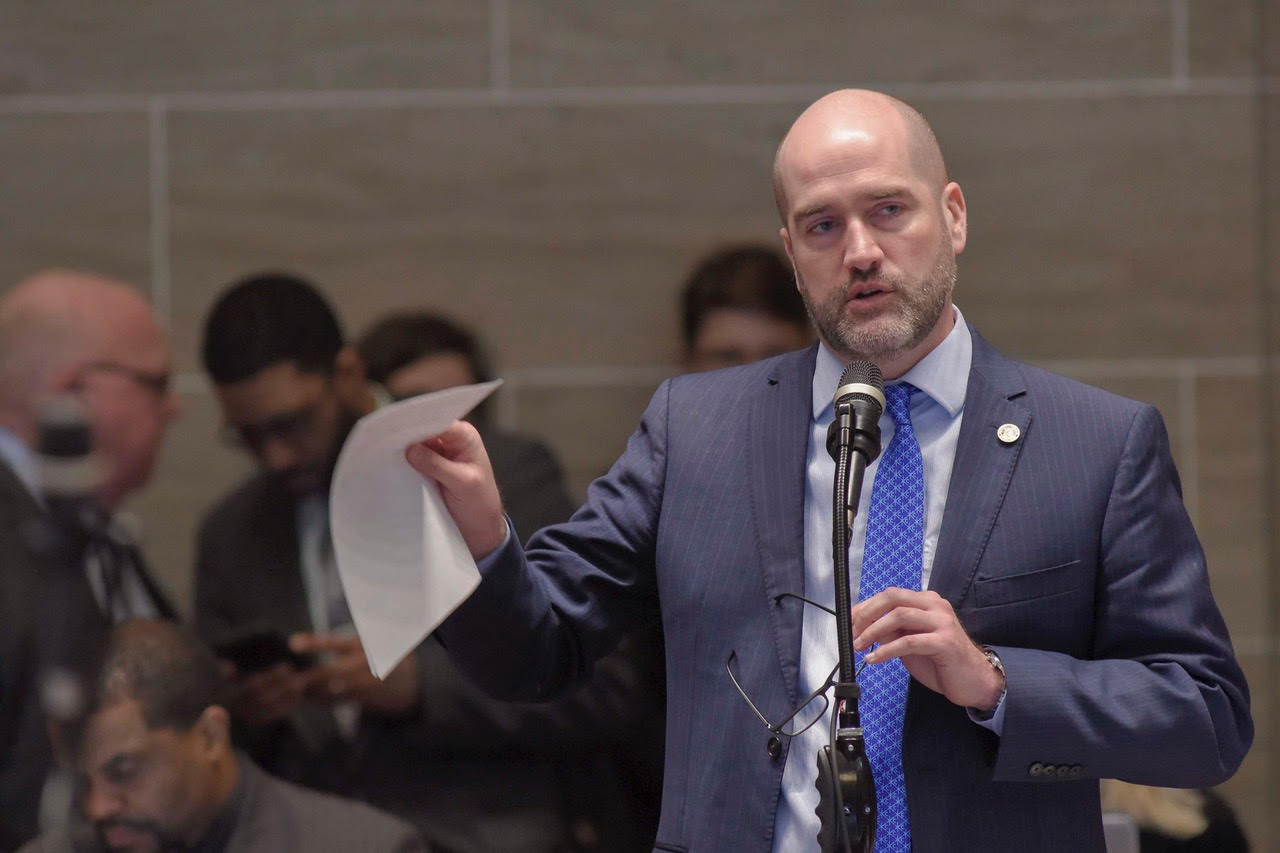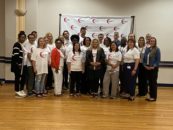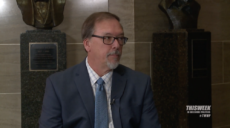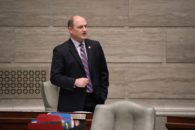The Missouri Times is previewing pre-filed legislation during the month of December, bringing you an insider’s look at bills that could potentially drive session next year. Follow along with our Legislative Preview series here.
In 2008, then-President George W. Bush signed into law the Paul Wellstone and Pete Domenici Mental Health Parity and Addiction Equity Act. The federal law essentially prohibited health insurance providers from imposing greater benefit limitations on mental health and substance abuse disorders than those regarding medical or surgical coverage.
But the law had a catch: It left it up to the states to enact enforcement mechanisms — something mental health advocates say Missouri hasn’t done.
It’s a problem incoming state Sen. Greg Razer hopes to fix in his first term in the upper chamber. Earlier this month, he pre-filed SB 80 to establish mental health parity in Missouri.
The bill specifically says health benefit plans cannot “impose a nonquantitative treatment limitation with respect to mental health condition benefits in any classification” unless the terms are “comparable to, and are applied no more stringently than, the processes, strategies, evidentiary standards, or other factors used in applying the limitation with respect to medical or surgical benefits.” The nonquantitative treatment limitations include prescription drug formulary designs, multiple network tier plans, and reimbursements, among other things.
Without an enforcement plan in place, insurance companies can “throw out so many hoops” for patients, such as requiring individuals to try certain prescription drugs before others could be utilized, Razer told The Missouri Times.
“That can be very dangerous. If you’re a person with serious mental health issues and you’re taking a drug that doesn’t have the benefits you’re hoping for, you’re likely to stop taking it, or the drug could have a serious negative side effect which is then going to delay taking appropriate action,” Razer, a Democrat, explained.
This bill would bring Missouri more in-line with requirements “many other states currently have,” Karmen Hanson with the National Conference of State Legislatures said. A spokesperson for the Missouri Department of Insurance did not respond to a request for comment.
And for Razer, this bill is personal — especially as the ongoing COVID-19 global health crisis collides with the holiday season.
“Since the pandemic started, I’ve had two personal friends commit suicide. I’ve talked to friends and family members — especially now that winter is here, the sky is gray, it’s dark sooner, we can’t sit outside, and we’re not seeing family for the holidays — it just weighs on all of us, myself included,” Razer said.
“For my family, Christmas is the holiday. It’s the holiday where we all come back to my mom’s house. We have a huge, fun few days together. We’re not going to get to do that this year. I’m going to be home alone on Christmas. I’ll get through it, but for a lot of people who have underlying mental health issues, that’s increasingly difficult,” he said.
Versions of this bill have been filed in past legislative sessions, including earlier this year in the House. Razer’s HB 1528 was referred to the House Insurance Policy Committee where it stalled.
“This is something that the mental health community has been working on for several years,” Gena Terlizzi, executive director of the National Alliance on Mental Illness (NAMI) Missouri, said.
A major part of the mental health coverage, absent an enforcement plan in state statute, is self-advocacy, Terlizzi said. NAMI Missouri holds training sessions for individuals to counter a potential parity violation with his or her coverage.
“There’s a series of steps you can take as an individual,” she said. “That is a lot of work, and if you’re an individual living with a mental illness — just like a physical illness — you have a lot of things you’re trying to balance, and that adds one more thing to the to-do list.”
“Our hope is that this measure will help eliminate or at least reduce the number of times these individuals are having to go back and either appeal a decision or go through the process of filing a parity violation complaint,” Terlizzi said. “The more often we can see mental health treated like physical health conditions, that is a step in the right direction for us because mental health conditions are very serious and can be debilitating, and we want them to be addressed as seriously as physical illnesses.”
COVID-19’s other victim: mental health
Not only has COVID-19 had a profound impact on the mental health of adults and children, a recent study found 1 in 5 people who contract the virus will also be diagnosed with a mental illness shortly thereafter. The study found those who test positive for COVID-19 are more likely to be diagnosed with anxiety, depression, and insomnia, among other things, according to NPR.
The Centers for Disease Control and Prevention (CDC) recommends taking a break from reading or watching the news, exercising regularly, avoiding excessive drug or alcohol use, knowing where to seek physical or mental health treatment, and connecting with other people to reduce stress during the pandemic. It also advised people to learn facts about COVID-19, as opposed to taking in internet rumors, to reduce anxiety.
The Missouri Department of Mental Health encourages people to reach out to the Disaster Distress Hotline via phone call (1-800-985-5900) or text (“TalkWithUs” to 66746).
As of Wednesday, Missouri’s positivity rate hovered at just above 19 percent with more than 2,500 people hospitalized, including 638 in the ICU and 334 on ventilators. About 23,000 Missourians have tested positive for COVID-19 in the past seven days and 71 have died.
Missouri does not count individuals who died by suicide who did not test positive for COVID-19 in its death count, an official said.
Editor’s Note: The National Institute of Mental Health has resources for those affected by the changing season or COVID-19. And if you or someone you know is in immediate distress or need some emotional support, call the toll-free National Suicide Prevention Lifeline at 1-800-273-8255.

Kaitlyn Schallhorn was the editor in chief of The Missouri Times from 2020-2022. She joined the newspaper in early 2019 after working as a reporter for Fox News in New York City.
Throughout her career, Kaitlyn has covered political campaigns across the U.S., including the 2016 presidential election, and humanitarian aid efforts in Africa and the Middle East.
She is a native of Missouri who studied journalism at Winthrop University in South Carolina. She is also an alumna of the National Journalism Center in Washington, D.C.
Contact Kaitlyn at kaitlyn@themissouritimes.com.























